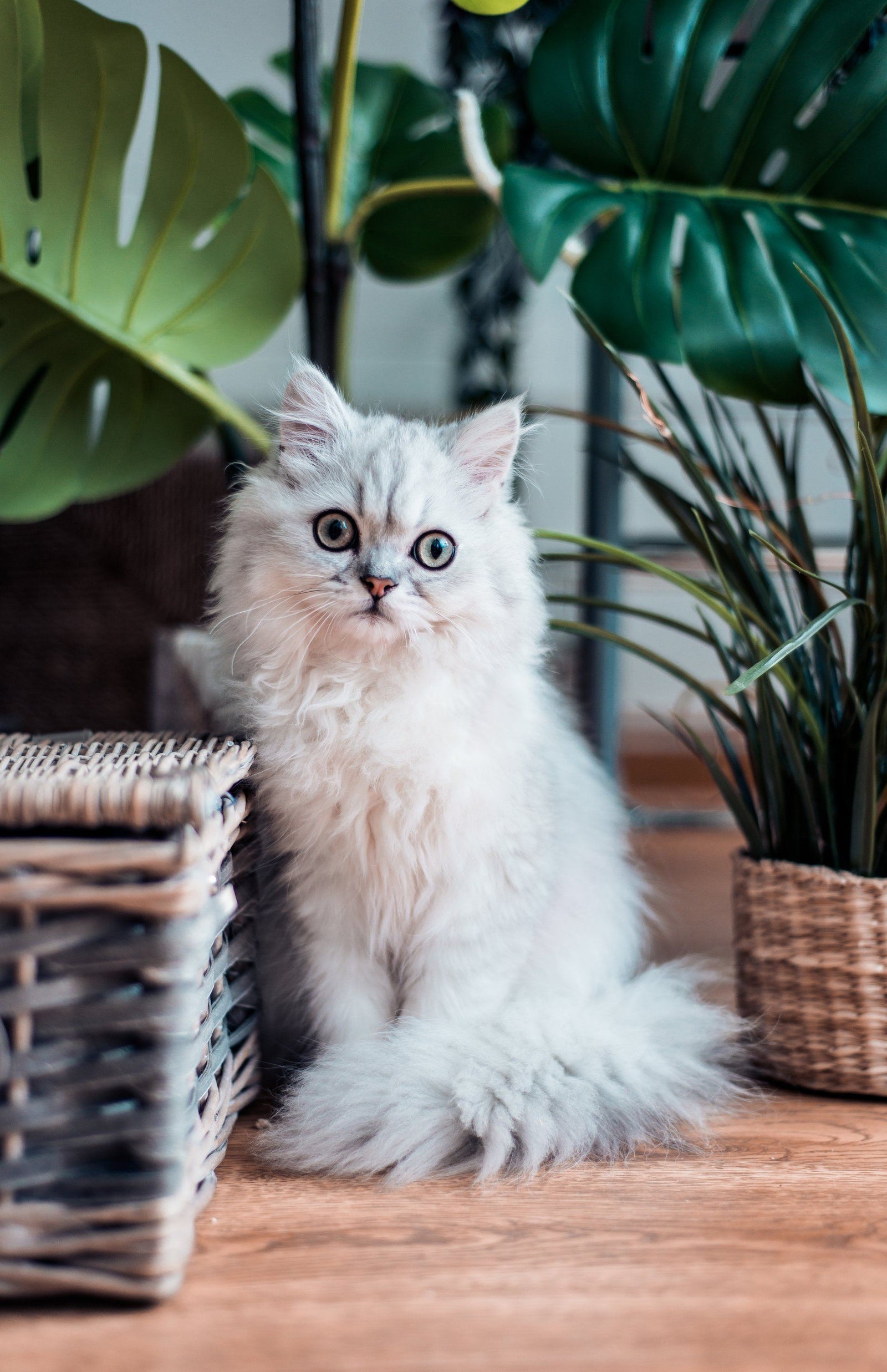
Despite your cat's aloof attitude, she really is attached – to you, to the other members of your family, and especially to her environment. Part of socializing a kitten is localization: the process of becoming attached to specific environments. If you're wondering how to socialize a cat who's new to your home, begin with localization.
By starting with the environment first, you can gradually build up to the social interactions that may seem scary to your kitty at first. Not only will this allow your cat to become acclimated to the important areas of your home that are now hers – like the litter box, thank you very much – but also it will reduce her stress.
Tired of your home smelling like you have a cat?
15% off PrettyLitter
Try it today Use code: PRETTYBLOG
While your newbie kitty is getting used to all the new noises and other living things – four-legged or two – around her, she'll be able to take comfort in the environment you've created for her. Without further ado, here's how to socialize a cat using localization.
How to Socialize a Cat Using Localization
The first step is to understand that cats are territorial little buggers. If you've ever had a toddler who went through the "mine!" phase, that's cats. Indefinitely.
The following tricks will appeal to your cat's egocentric (but adorable) mind while using the veterinary concept of localization to socialize her.
Food Placement
The best way to keep your cat happy and engaged? You guessed it... food. One of the most powerful localization tactics is to create a space that's just for your cat's food.
The spot should be accessible at all times (i.e., not behind a door that is closed at night or when you go to work) and out of reach of other pets or human children. Also, keep your cat's food stored in a specific place so she knows that when you head for that corner cabinet or pantry door, she's sure to get a treat.
Use a regular feeding time as a way to keep your cat on a healthy schedule (and to avoid 3 AM meowing-fits).
Finally, be sure to get a separate food bowl for each of your cats. Cats are territorial and when they start stepping on each others' paws – especially for food – things can get ugly. If your cats don't do the whole "sharing" thing well, give them each a dedicated food spot in a separate part of your home. However, some cats enjoy shared nibbling time and prefer their bowl to be next to their friend's bowl.
Household Odors
Humans like for their homes to smell warm and inviting. For many, this means whipping out the essential oils and diffuser. However, this can be dangerous for your cat and can seriously disrupt the socialization process.
While it seems like something natural and good for humans should be good for our little fur balls, too, that's not the case with essential oils. In fact, the American Veterinary Medical Association says that essential oils can be "harmful" and "toxic" to all pets, not just cats.
Rather than trying to fluff your home up with good smells, use safer tactics to get rid of odors throughout your home while designating certain spaces for your cat to leave her scent and make herself feel at home.
To eliminate odors, try:
- Sprinkling the bottom of your trash can with baking soda
- When the weather is friendly, open a few windows to let in a nice cross breeze
- Clean up any spills or debris right away before it's allowed to become food for bacteria
- Use a tin of coffee grounds with holes poked in the lid near the litter box (or use PrettyLitter)
- Grind softened rinds of lemon, lime, or orange in your garbage disposal

Then, give your cat a specific spot in your home – ideally a perch like a cat tree or large window sill – where she can get cozy on a small pet blanket that holds her scent. This will ensure she has a reliable place to call her own and relax when the going gets tough (like between feedings).
Sounds
Cats have extremely sensitive ears. While some noises are out of your control, making a deliberate effort to reduce loud noises can help your cat begin to feel safe in her environment as she becomes more socialized.
For example, make sure to turn down the volume on the TV before pressing "Play" on your favorite shows and movies. Turn the ringer down on your phone and, if possible, mute your microwave buttons and alarm, as well. Let your cat escape to a quiet room before turning on the vacuum.
If your cat is already afraid of loud noises, there are ways to desensitize her naturally without having to resort to medications like tranquilizers.
Ultimately, your cat wants to be a healthy, well-socialized kitty. It just takes some time and a bit of effort on your part to help her get there. By starting with localization before moving on to socialization, you'll have a healthy, happy kitty on your hands in no time.
Do you have questions on how to socialize a cat? Whether you're adopting or your furry momma cat has just popped out an adorable litter of kittens, it's an important process. Let us know how we can help in the comments below.
=